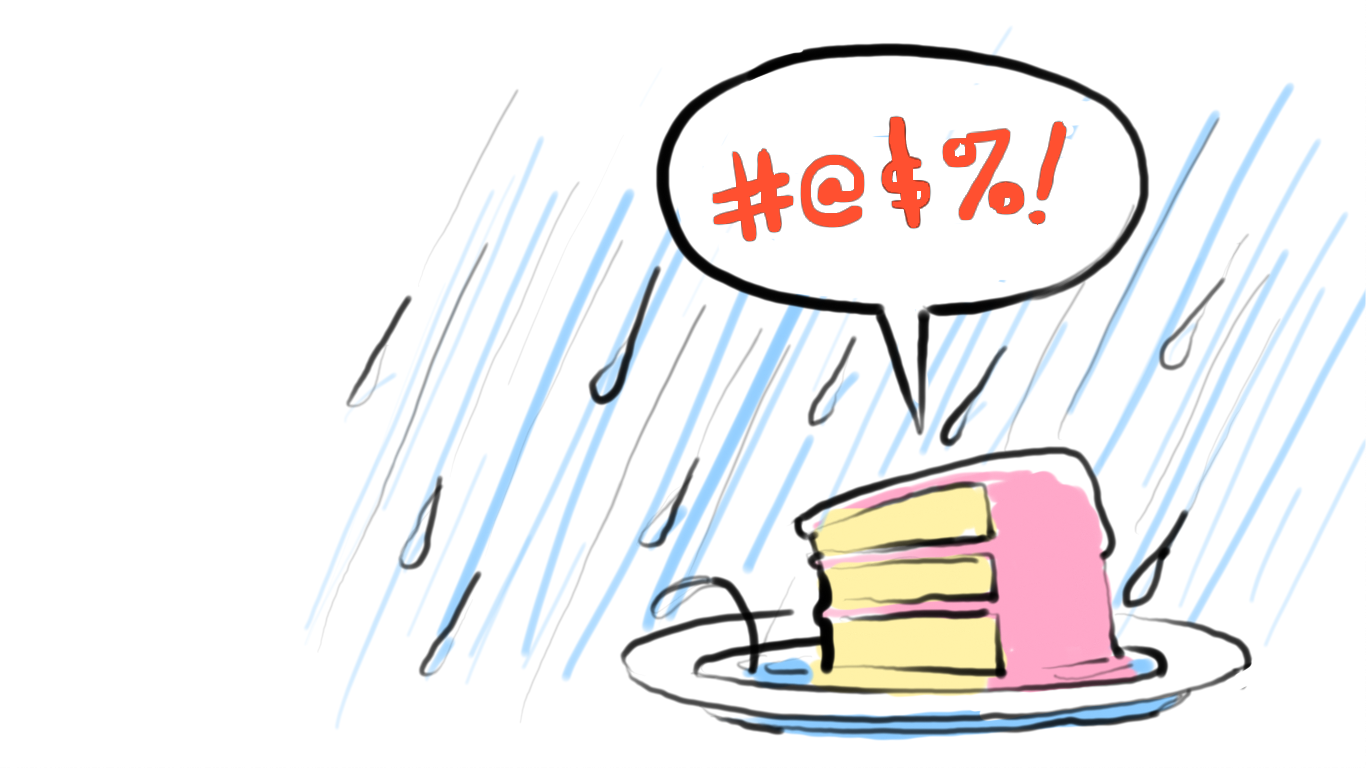Hey, There's Cake
Oh no, someone left it out in the rain!
There are, in fact, words that don't contribute to the semantic meaning of a sentence.1 These words are called expletives, and I provided an example of one type in the recent post 14 Tips for Editing Your Own Work. An expletive, from the Latin expletivus (serving to fill out),2 is a word you can cut without changing meaning.
When you say There's cake, the word there is an expletive. What you're really saying is *Cake is, but that is a weird thing to say. When a verb needs something to act on, this kind of expletive comes into play. Often, that means starting a sentence with it is or there is. A common form of this type of expletive is the weather it. You can't say *Raining is, so you add the expletive it and say It is raining instead.
Hey, you know what else is an expletive? Words like hey as in Hey, there's cake! So, it will not surprise you to hear that the introductory particle so is also an expletive. This kind of expletive works as a discourse marker, a phrase that expresses emotion or helps us organize what we're saying. Indeed, adverbs or as a matter of fact entire adverbial phrases can of course be expletives.
But when you think about expletives, perhaps you think about expletive deleted3 from the Watergate hearings. In this case, an expletive refers to what some people call a four-letter word, often used as a profane exclamation. These can go on the front of a sentence just as hey can, but my favorites can go right in the middle of another word—as an expletive infixation. It's un-dadgum-believable that an expletive can interrupt a word like that.
You can always take out an expletive without changing the basic meaning of a sentence, but expletives can provide nuance and emphasis that are hard to achieve any other way. I love you is nice to hear, but doesn't quite capture the connotation of It's you I love. The expletive makes all the difference. That's why my advice is to minimize them rather than eliminating them.
I mean, wow, right?
What I did there, at the beginning of the sentence, you see it.
See Expletive deleted on Wikipedia.



While reading this I thought this: Most effing TV weather people, sometimes called "meteorologists", should be referred to as "Weather It". For example: "Get out our long-johns, dear. The Weather It says snow is predicted for tomorrow."
Many Australians have an "adjective infixation" when it comes to the "Great Australian Adjective." (One of my favorite examples is "Nineteen-bloody-eight!")